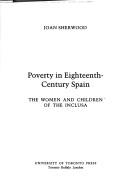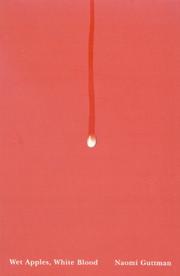| Listing 1 - 10 of 81 | << page >> |
Sort by
|
Book
ISBN: 9782846300407 2846300402 Year: 2007 Publisher: Paris : Cosmopole,
Abstract | Keywords | Export | Availability | Bookmark
 Loading...
Loading...Choose an application
- Reference Manager
- EndNote
- RefWorks (Direct export to RefWorks)
Wet nurses --- Nourrices --- History. --- Histoire
Book
Year: 1984 Publisher: Milano : Università cattolica del Sacro Cuore,
Abstract | Keywords | Export | Availability | Bookmark
 Loading...
Loading...Choose an application
- Reference Manager
- EndNote
- RefWorks (Direct export to RefWorks)
Manuscripts, Greek (Papyri) --- Wet-nurses --- Contracts --- History --- Sources --- Egypt
Book
Year: 1878 Publisher: Paris : V. Adrien Delahaye,
Abstract | Keywords | Export | Availability | Bookmark
 Loading...
Loading...Choose an application
- Reference Manager
- EndNote
- RefWorks (Direct export to RefWorks)
Syphilis --- Syphilis, Congenital, hereditary, and infantile. --- Wet nurses. --- Transmission.
Book
Year: 1984 Publisher: Milano : [s.n.],
Abstract | Keywords | Export | Availability | Bookmark
 Loading...
Loading...Choose an application
- Reference Manager
- EndNote
- RefWorks (Direct export to RefWorks)
Manuscripts, Greek (Papyri) --- Wet nurses --- Contracts --- History --- Sources. --- Egypt
Book
ISBN: 8493127006 8493127078 8479560428 849312706X Year: 2005 Publisher: Valladolid : Zaragoza : Santos Crespo Ortiz de Zárate ; Pórtico Librerías,
Abstract | Keywords | Export | Availability | Bookmark
 Loading...
Loading...Choose an application
- Reference Manager
- EndNote
- RefWorks (Direct export to RefWorks)
Wet nurses --- Prosopography --- Inscriptions, Latin --- Nourrices --- Prosopographie --- Inscriptions latines --- History --- Sources --- Histoire --- Rome --- Sepulchral monuments --- History.

ISBN: 0802026621 Year: 1988 Publisher: Toronto University Press
Abstract | Keywords | Export | Availability | Bookmark
 Loading...
Loading...Choose an application
- Reference Manager
- EndNote
- RefWorks (Direct export to RefWorks)
Child welfare --- Foundlings --- Illegitimate children --- Orphanages --- Poor women --- Wet nurses --- History --- Inclusa (Madrid, Spain) --- History.

ISBN: 128286761X 9786612867613 0773577165 9780773577169 9780773532458 0773532455 0773578730 9780773578739 6612867612 Year: 2007 Publisher: Montreal [Que.] McGill-Queen's University Press
Abstract | Keywords | Export | Availability | Bookmark
 Loading...
Loading...Choose an application
- Reference Manager
- EndNote
- RefWorks (Direct export to RefWorks)
Naomi Guttman's new poetry collection was inspired by the role of nursing in human evolution and culture. The first cycle of poems, "Wet Apples, White Blood," offers lyric glimpses into archetypes of breastfeeding women in history and myth. The dramatic action in the second cycle, "Galactopoesis," centers around the experience of a mother whose young child is hospitalized. Galactopoesis is the medical term for the continued secretion and production of milk. It derives from the Greek radicals for 'milk' (galacto) and 'making' (poesis), which is also 'poetry.' In Wet Apples, White Blood, nursing, as a constant creative act dependent on the baby's demand, is a trope for the creative process and for questions of biology, psychology, and spirituality.
Breastfeeding --- Mother and child --- Breast feeding --- Nursing (Breastfeeding) --- Suckling --- Infants --- Lactation --- Wet nurses --- Nutrition
Book
ISBN: 0739191993 9780739191996 9780739191989 0739191985 Year: 2015 Publisher: Lanham
Abstract | Keywords | Export | Availability | Bookmark
 Loading...
Loading...Choose an application
- Reference Manager
- EndNote
- RefWorks (Direct export to RefWorks)
This book explores how breastfeeding is both promoted and made difficult in the United States, while the use of formula is simultaneously shamed and promoted. An exploration of feminist scholarship, forms of advocacy, grassroots activism, and breastfeeding experiences sheds light on a way forward that offers substantive support without shaming.
Breastfeeding --- Breast feeding --- Nursing (Breastfeeding) --- Suckling --- Infants --- Lactation --- Wet nurses --- Political aspects --- Social aspects --- Nutrition
Book
ISBN: 1610022874 9781610022873 9781610021845 1610021843 Year: 2018 Publisher: Tasca, IL
Abstract | Keywords | Export | Availability | Bookmark
 Loading...
Loading...Choose an application
- Reference Manager
- EndNote
- RefWorks (Direct export to RefWorks)
Breastfeeding. --- Newborn infants --- Breast feeding --- Nursing (Breastfeeding) --- Suckling --- Infants --- Lactation --- Wet nurses --- Nutrition. --- Care. --- Nutrition
Book
ISBN: 9781611223255 1611223253 9781607419334 1607419335 Year: 2010 Publisher: New York Nova Science Publishers, Inc.
Abstract | Keywords | Export | Availability | Bookmark
 Loading...
Loading...Choose an application
- Reference Manager
- EndNote
- RefWorks (Direct export to RefWorks)
"Breastfeeding is the feeding of an infant or young child with breast milk directly from human breasts rather than from a baby bottle or other container. Babies have a sucking reflex that enables them to suck and swallow milk. Most mothers can breastfeed for six months or more, without the addition of infant formula or solid food. Human breast milk is the most healthful form of milk for human babies. There are a few exceptions, such as when the mother is taking certain drugs or is infected with tuberculosis or HIV. Breastfeeding promotes health, helps to prevent disease and reduces health care and feeding costs. In both developing and developed countries, artificial feeding is associated with more deaths from diarrhea in infants. Experts agree that breastfeeding is beneficial, but may disagree about the length of breastfeeding that is most beneficial, and about the risks of using artificial formulas. This new and important book gathers the latest research from around the globe in the study of breastfeeding with a focus on such topics as: breastfeeding during crises and emergencies, breastfeeding physiology and anatomy, the contraceptive role of breastfeeding, religion and breastfeeding and others."--Publisher's description.
Breastfeeding. --- Infants --- Breast feeding --- Nursing (Breastfeeding) --- Suckling --- Lactation --- Wet nurses --- Nutrition. --- Nutrition
| Listing 1 - 10 of 81 | << page >> |
Sort by
|

 Search
Search Feedback
Feedback About UniCat
About UniCat  Help
Help News
News